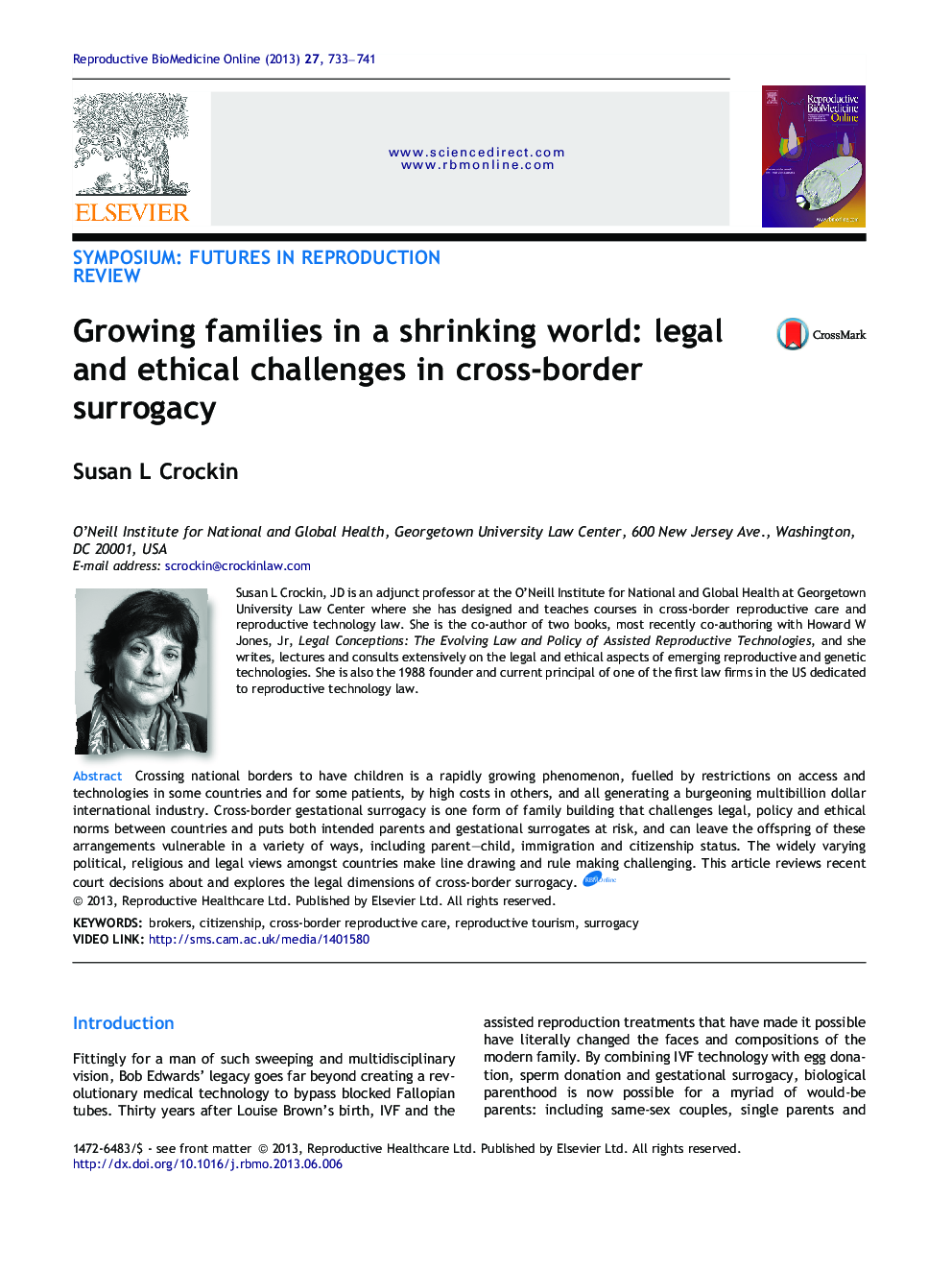| Article ID | Journal | Published Year | Pages | File Type |
|---|---|---|---|---|
| 3970228 | Reproductive BioMedicine Online | 2013 | 9 Pages |
Crossing national borders to have children is a rapidly growing phenomenon, fuelled by restrictions on access and technologies in some countries and for some patients, by high costs in others, and all generating a burgeoning multibillion dollar international industry. Cross-border gestational surrogacy is one form of family building that challenges legal, policy and ethical norms between countries and puts both intended parents and gestational surrogates at risk, and can leave the offspring of these arrangements vulnerable in a variety of ways, including parent–child, immigration and citizenship status. The widely varying political, religious and legal views amongst countries make line drawing and rule making challenging. This article reviews recent court decisions about and explores the legal dimensions of cross-border surrogacy.Crossing national borders to have children is a rapidly growing phenomenon, fuelled by restrictions on access and technologies in some countries and for some patients, by high costs in others, and all generating a burgeoning multibillion dollar international industry. Cross-border gestational surrogacy is one form of family building that challenges legal, policy and ethical norms between countries and puts both intended parents and gestational surrogates at risk, and can leave the offspring of these arrangements vulnerable in a variety of ways, including parent–child, immigration and citizenship status. The widely varying political, religious and legal views amongst countries make line drawing and rule making challenging. This article reviews recent court decisions about and explores the legal dimensions of cross-border surrogacy.VIDEO LINK:http://sms.cam.ac.uk/media/1401580
